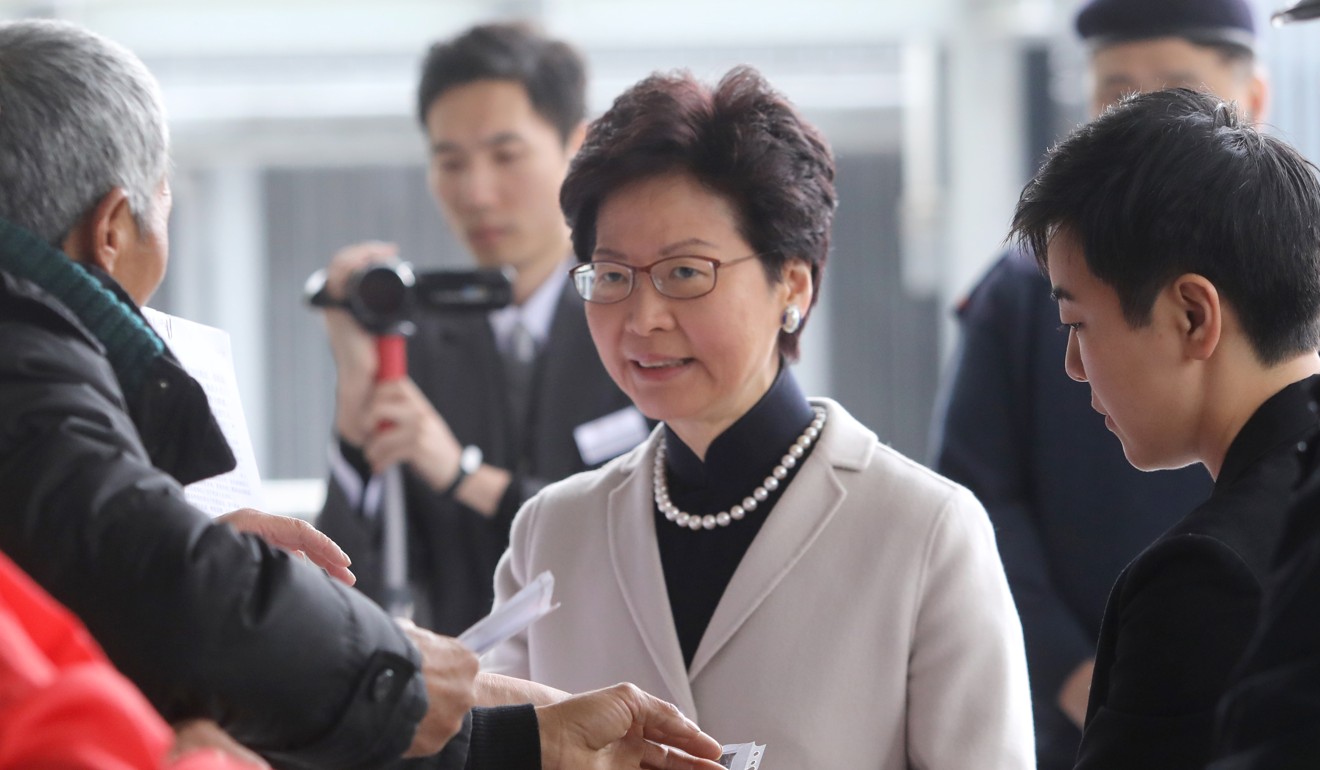
Carrie Lam rejects call to mediate tensions in Legco over rule book changes, says pan-dems would not want her to interfere
Hong Kong leader says fears over government bulldozing through national security legislation are unfounded and it would ‘absolutely not do anything to hurt the people’
Hong Kong’s leader on Tuesday turned down a veteran politician’s suggestion that she mediate between rival camps in the legislature, who are locked in a clash over one side’s proposed changes to the rule book to curb filibustering.
Hong Kong Legco descends into chaos as pan-democrats protest over rule book changes
The protesters were told to go as the zone is only open for use from 7am to 11pm.
But they refused to leave, with several pan-democrat lawmakers having already pitched tents to hold overnight vigils to demonstrate against pro-establishment lawmakers, who countered that their efforts would put an end to delaying tactics employed by pan-democrats to block bills or motions they disagree with.
On Tuesday, Lam said: “I always want to be a mediator in order to bring peace, not only to the Legislative Council, but to society at large, but unfortunately on this matter, it seems the position of the two groups of Legislative Council members are extremely different, or even polarised.
“I really don’t think I have that ability or capacity to mediate in the matter.”
Lam also noted that pan-democrat lawmakers would “not want the chief executive to get involved, or to interfere in [council] matters”.
“I would rather abide by that principle,” she added, in response to former Legco president Andrew Wong Wang-fat’s call for her to urge reconciliation between both camps, which have been mired in antagonism for weeks.
Lam, who took office on July 1, has seen her popularity drop steadily, hitting a record low of 55.7 out of 100 earlier this month. This was down 3.2 points from November, according to the University of Hong Kong’s public opinion programme.
Days numbered for filibustering Hong Kong pan-democrats as pro-Beijing camp set to table 24 proposal
Democratic Party legislator James To Kun-sun said Lam was being “naive”.
“Lam should speak up on the pro-government camp’s amendments, which contravene the Basic Law,” he said, adding that Lam would “bear the political responsibility” if anyone were to challenge the changes legally, and the pro-establishment camp lost.
To’s party colleague Lam Cheuk-ting insisted the proposed amendments would make it harder for the pan-democrats to block controversial laws.
Last week, when Legco finally began a debate on amendments to the rule book, pan-democrats staged a protest in the chamber, with many refusing to return to their seats.
The intense debate is expected to resume on Wednesday, with Legco president Andrew Leung Kwan-yuen ordering additional meetings be held until the issue is settled, making it likely that rule book changes will be passed by next week at the latest.
National security laws must do justice to Hong Kong
“The legislation is controversial, and it can only be done when there is an atmosphere for rational discussion in society … I have been in the government for 37 years, and we would absolutely not do anything to hurt the people,” she said.
Beijing signals impatience at Hong Kong’s delay in enacting national security law
“It is completely inappropriate for [the pan-democrats] to use these excuses to resist the discussion on changes to the rules.”
She said she would report Hong Kong’s recent developments to state leaders, including her policies on youth and innovation, as well as the performance of her ministers.

On Tuesday, Leung said that the Legco Commission, which handles the council’s administrative matters, had discussed security measures for the council meeting on Wednesday.
It agreed that apart from guided tours for schools and other guests, the council would only reserve 10 seats for members of the public in the gallery.
Commenting on the recent drama in Legco, the city’s former chief secretary Henry Tang Ying-yen said he agreed with the amendments as current meeting rules had been “abused to delay” the government’s plans.
“In recent years, the operation of the legislature has been rather chaotic and bad. Lawmakers should be serving the people,” Tang said on a radio programme.
Some 20 scholars at Hong Kong universities on Tuesday launched a petition campaign calling on the public to express objection to amending the rules as proposed.
“The government is likely to become the representative of a dictatorial regime not subject to any checks and balances on its power, and all Hong Kong people will suffer as a result,” the group said.

